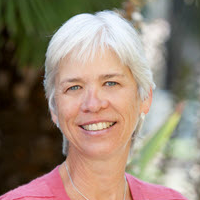The opportunity to directly engage with people in Iowa about climate change and evolution just got a whole lot easier with a $270,000 three-year grant from the Carver Charitable Trust.
The great success of the Science Booster Club Program and the new grant are strong testaments to the power of creating deep partnerships between academic institutions and nonprofit organizations.
NCSE has had a beneficial collaboration with the University of Iowa since the inception of the Science Booster Club Program. In this case, the joint submission of the proposal to the Carver Charitable Trust was just the beginning of a positive experience for many parties. The grant will fund the stipends and tuition of up to 12 graduate students over the three-year grant period. The students will acquire skills while creating new science booster clubs in communities that may have limited access to high-quality science education. Win-win-win.
NCSE Director of Community Organizing and Research Emily Schoerning noted the partnership with the University of Iowa enhances NCSE’s work in communities in many ways.
“The University of Iowa has been a great partner for the past two years. They have supplied most of the funding for graduate student interns for the Science Booster Club Program, and provided program space, library access, and numerous resources for statistical analysis. Our partnership has helped us bring engaging science education to tens of thousands of Iowans. I’m excited about the ways this grant will fuel our partnership for years to come."
The graduate students will build science booster clubs from the ground up in four Iowa towns and cities. First they will develop relationships with local residents who will help them identify and recruit volunteer leaders and support teams. They will also seek venues to host the events that will ensure large and diverse audiences.
The graduate students will then train the volunteers to run booster club activities while they also lead some of the initial events. Eventually, the graduate students will hand over leadership of the new science booster clubs to the grassroots volunteer networks they created.
And hence, new booster clubs will be born.
University of Iowa Associate Professor Maurine Neiman, who co-wrote with NCSE’s Schoerning the Carver Charitable Trust grant proposal, is thrilled the funding will jump-start the program’s expansion in Iowa. More people will have access to the tools they need to understand evolutionary science and learn about the challenges climate change poses to their communities.
“These graduate student internships are even more appreciated in a climate where funding for basic science – and graduate students really drive so much scientific progress – is eroding. So financial support of graduate students is appreciated more than ever,” Neiman said.
For decades, manufacturing has been the key source of jobs for people living in the four towns and cities chosen for new science booster clubs. Residents face some of the negative consequences of manufacturing plants in their communities, including coping with lead-poisoned water and soil from a chemical factory. They also are concerned about increased unemployment in the future, as many of the local plants contemplate the transition to automation.
These local challenges, along with the national anti-science trend and generally low science literacy rates, reinforce the importance and impact the science booster club activities will have in people’s lives.
As with all science booster club activities, including the new ones in Iowa, the aim is to help people gain evidence-based science knowledge and apply “thinking like a scientist” skills to many aspects of their lives.
For instance, one activity will focus on vector-spread diseases, specifically ticks as carriers of Lyme disease. The activity will demonstrate that the range of ticks is expanding north and west as the climate changes, bringing diseases with them.
“The hope is people will see how climate change affects local issues. This knowledge can provide direct benefits. We might hope, for example, that this information will help participants remember to check for ticks on their bodies after they walk through grassy areas,” says Neiman.
This program expansion will not only allow us to touch the lives of hundreds more people, but also help improve our model for hands-on science learning. The graduate students will collect data from people participating in the events. In turn, Neiman, University of Iowa Associate Professor Andrew Forbes, and NCSE staff will use the data to improve the science booster club activities and to research and report the results on the efficacy of increasing science literacy in different types of communities.
So many wonderful things aligned to enrich the quality of evolution and climate change knowledge in Iowa: the generosity of the Carver Charitable Trust, the enthusiasm and passion of graduate students, and the fruitful partnership of the University of Iowa and NCSE.

